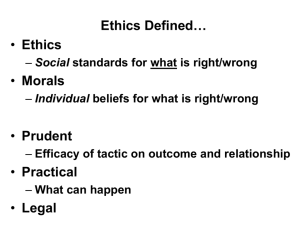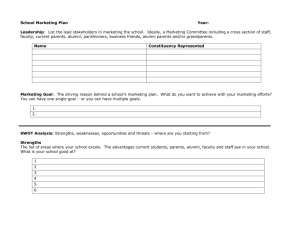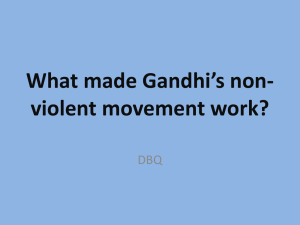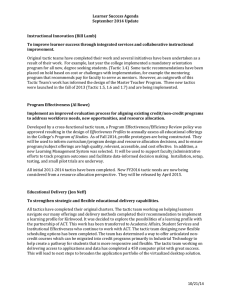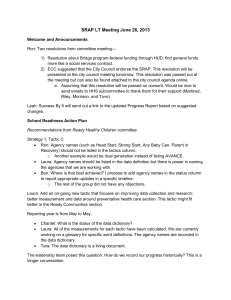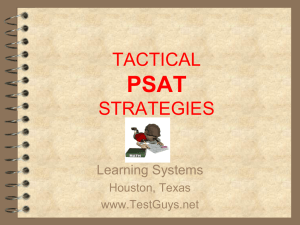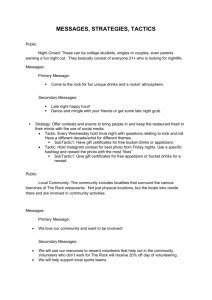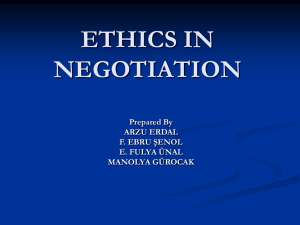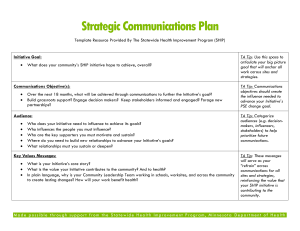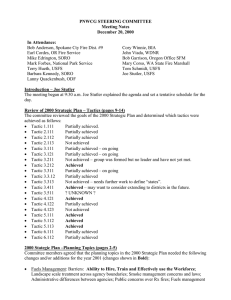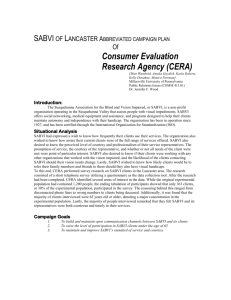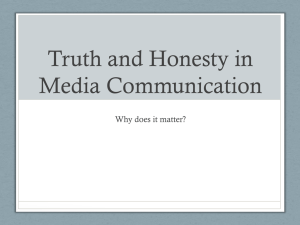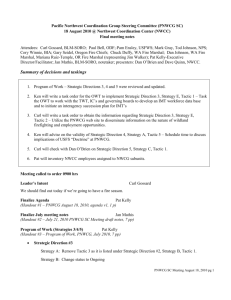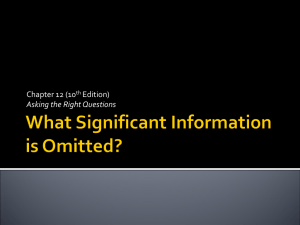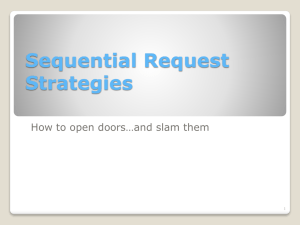Ethics
advertisement
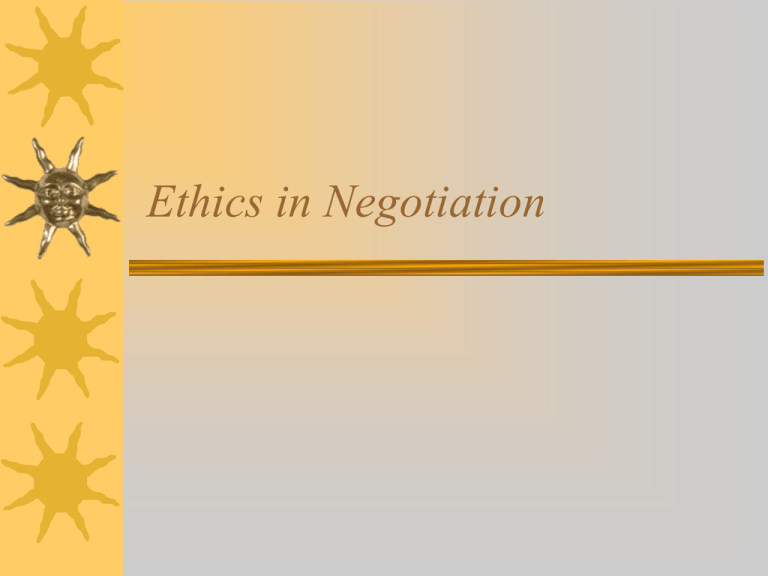
Ethics in Negotiation Why Do Ethics Apply to Negotiation? “Ethics are broadly applied social standards for what is right or wrong in a particular situation or a process for setting those standards” – Not morals: individual and personal beliefs about right and wrong Standards for Evaluating Strategies and Tactics Make decision based on: Expected results, what would give the greatest return on investment – End-result ethics What the law says, the legality – Rule ethics Strategy and values of my organization – Social contract ethics My own person convictions and what my conscience told me to do – Personalistic ethics Types of Deceptive Tactics Misrepresent one’s position to another party – Lie about preferred settlement or resistance point Bluffing – Say will do something they don’t intend to do. Falsification – Factually erroneous information. (fraud) Deception – Collection of true and/or untrue arguments that leads the other to wrong conclusion. (fraud) Selective disclosure or misrepresentation to constituencies – Not accurately tell what has transpired. Omission. SINS Scale Traditional competitive bargaining Manipulation of opponent’s network False promises Misrepresentation of information Inappropriate information gathering Bluffing, Lying, & Deception Excuses people use to justify – – – – Tactic was unavoidable Tactic was harmless Tactic will help avoid negative consequences Tactic will produce good consequences, or altruistically motivated. – They had it coming – They were going to do it, so I did it first – Tactic is fair or appropriate to situation Consequences of Unethical Tactics Impact of tactic. Does it work? – Rewards vs. punishments Feedback and reaction from other negotiator, constituencies, and audiences – Anger, retaliation, revenge – Short term success, create an adversary Evaluate own use of tactic— discomfort, personal stress, guilt vs. no problem using tactic again. Detecting Deception Intimidation A chink in the defense Futility portrayal Self-disclosure Discomfort and relief Point of deception cues Bluffing Concern Gentle prods Keeping the status quo Minimization Direct approach Contradiction Silence Altered information Dealing with Deception Ask probing questions – Uncovers acts of omission at least – Most buyers do not ask enough questions Recognize the tactic – – – – Ignore the tactic Call the tactic Respond in kind Discuss what you see and offer to help the other party change to more honest behaviors – “You wish…”
